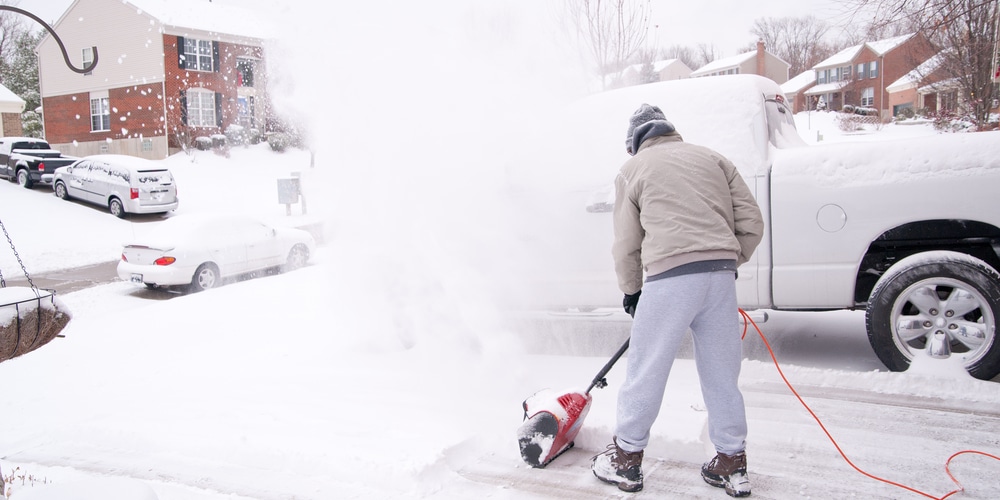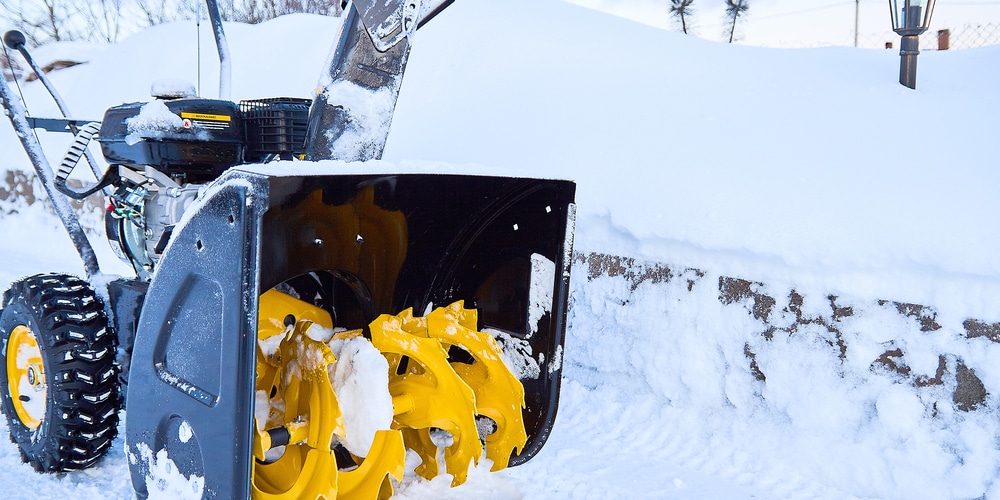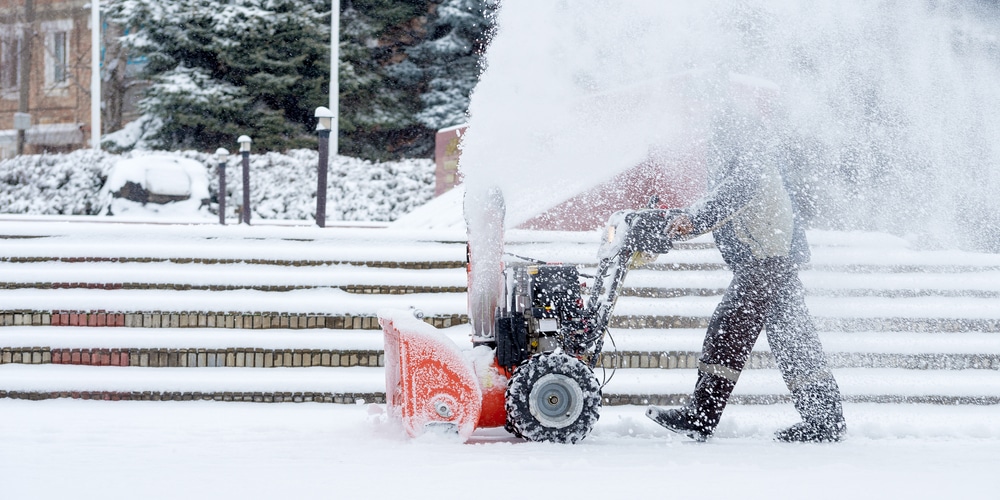As winter approaches, many homeowners are thinking of buying a snowblower and are wondering which is the best electric vs gas snowblowers. Let’s look at the pros and cons of each type, followed by a detailed comparison of both types.
The Pros and Cons of Electric Snowblowers
Pros
Inexpensive – The initial cost is less than a gas-powered model because there is no engine. Also, there are fewer parts to maintain and service over time because you don’t have an engine.
Easier to start – There’s no pull-cord or choke to fool around with. Electric versions have a start button that you just need to push.
Less messy – No gas/oil mixture, fumes, or exhaust. Electric snow blowers don’t expel emissions like gas-powered models. This means that they are more environmentally friendly.
Quieter – no roaring engine
Cons
Corded – You can only use an electric blower where you have access to an outlet. Electric models are also limited by the length of their cord (although some do come with 50 ft cords). This makes them impractical in large, open areas. There are some newer models available that are battery-powered and don’t have cables.
Battery operated– Most of these models will last for about 20-30 minutes of blowing before they need to be recharged. You don’t want to leave the battery in the garage if it’s really cold because the electrons won’t move fast enough to run the snowblower.
Less power – Electric snow blowers are great for small, light jobs, but they can’t handle heavy or thick drifts like gas models.
Limited range of conditions – Most corded electric snow blowers are designed for use in temperatures above 32F (really the battery just needs to be warm. Keep it in the house when not in use or on the charger), so they don’t work well when it’s colder out. Also, if you have a lot of ground to cover and short of time, nothing beats the power and speed of a gas blower.
The Pros and Cons of Gas Snowblowers
Pros
More powerful – You can get more horsepower in a gas-powered model, which means you can move through drifts faster. The majority also comes with two speeds, so you can use a lower setting for lighter snow.
Better in sub-freezing temperatures – Because of their compression ignition engines, gas blowers are ready to go at lower temps. This is why they are the preferred type of blower by many contractors during the winter months
Cons
Heavy – Gas-powered snowblowers can weigh upwards of 60 pounds more than their electric counterparts. They can also be difficult to start in sub-zero conditions.
Noisy – You can hear gas-powered blowers from a long way off, which isn’t good if you live in a neighborhood.
More expensive – Gas-powered snowblowers can cost more than double what a similar electric model costs. You also need to determine if you need a 2 stage or 3 stage snow blower. They’re both way more powerful than an electric snowblower.
The Electric Snowblower vs Gas Snowblower Comparison
As you can see from the list above, both types have their advantages and disadvantages. In all the comparisons below, we’ve given our opinion on which one will suit your needs best or be the better overall value for your dollar, depending on the criteria.
Power and Performance
Electric snow blowers can be just as powerful as gas models if they have the same engine size and power output. Gas snowblowers tend to be better for colder temperatures and can handle heavier snowfalls. This reason alone is enough to make them the preferred type of blower for commercial road clearers.
Cost
The winner here depends on how much you use your snowblower and what kind of snow conditions you typically encounter. For those who only have to clear light, fluffy snow around town, an electric model will save them money in the long run because it doesn’t have an engine that needs gas or oil.
On the other hand, if you live outside of town and move a lot of heavy snow, you will definitely save money by getting a gas model. This is because they usually cost hundreds more than an electric snow blower but last longer.
Corded or Cordless
The corded electric snowblowers are lightweight, easy to maneuver, and better suited for small jobs around your property where you have access to an outlet. On the other hand, cordless gas snow blowers are ideal for in-town use and larger areas away from a power outlet.
Snow Blower Maintenance
The winner here is electric snowblowers. They are easier to maintain because there are fewer parts, it’s cheaper to buy the replacement parts, and there is no fuel involved. On the other hand, gas models have more moving parts that will need regular maintenance every time you use them.
Conclusion
Snowblowers can be a major investment depending on the type, price range, and brand. There are many different makes and models to choose from that vary greatly in features. When comparing an electric vs gas snowblower, people who don’t need avalanche-ready performance or a heavy-duty machine for mountains of snow, cordless electric models will usually suffice.
If you only get a dusting every year, you can use a leaf blower to clear snow. But, it needs to be DRY snow.
Related:


